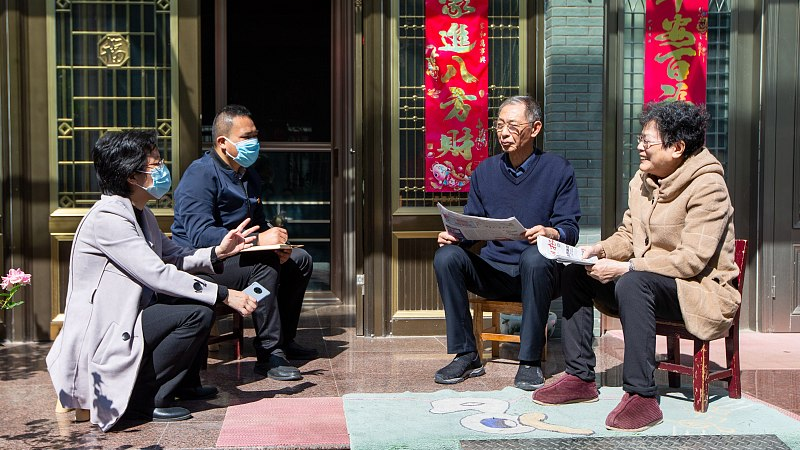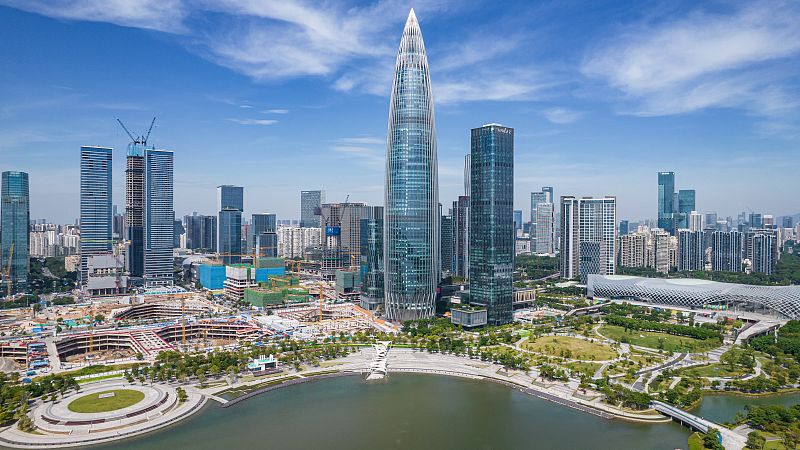
Discipline inspection and supervision cadres listen to people's suggestions on anti-corruption, Jiangsu, China, October 20, 2022. /CFP
Discipline inspection and supervision cadres listen to people's suggestions on anti-corruption, Jiangsu, China, October 20, 2022. /CFP
Editor's note: Hafijur Rahman is a columnist and Security and Strategic analyst, working in a prominent Strategic Studies Center in Bangladesh. The article reflects the author's opinions and not necessarily the views of CGTN.
The rise of public mistrust in governments and state institutions has become the new normal worldwide. The trust deficit between the public and political establishment has widened across the globe, including in developed societies, although for a long time, they had boasted of their political and state system's integrity and superiority. In the United States, trust in the national government has declined from 73 percent in 1958 to 24 percent in 2021. Western European countries have witnessed similar steady declines since the 1970s.
Failures to discern the challenges in progress, initiate structural adjustments in accordance, and redress public concerns have rendered the state apparatus a dysfunctional morass for their citizenry. Governments' poor performance in handling COVID-19 and responding to mitigate pandemic-induced economic owes has exacerbated the ever-declining public trust. Accordingly, few political leaders have the political mandate or legitimacy necessary to make the difficult but crucial decisions that the current situation necessitates.
In stark contrast, according to recent data from the Edelman Trust Barometer, the Chinese public's satisfaction with the government's leadership has reached 90 percent. A recent survey by the University of California, San Diego showed that support for the government jumped the most among younger respondents. Regarding the Chinese government's pandemic response what the Western media has called, "draconian and harsh," only about one percent of Chinese citizens have expressed cynicism about the government during the pandemic.
While most other developed countries' governments are struggling with sagging public trust, how has the Chinese government with the century-old Chinese Communist Party (CCP) at the helm sustained their peoples' faith? The answer lies in its political leadership's lasting capability to re-adjust its policy apparatus to emerging challenges that the nation has confronted from time to time. Today, most political leaders, particularly in the West, have had to unify their populations even for a smaller national-level action by highlighting external threats, such as China; Instead, the Chinese political leadership can support difficult decisions for broader national interests riding on the hard-won and sustained political legitimacy trust the Chinese have bestowed on it.
Always firm in its "original mission," the Chinese Communist Party has continued its re-invention drive since the establishment of the People's Republic of China in 1949. In the process, the Party first transformed itself from a revolutionary fighting force into a governing institution in 1949. The second was China's reform and opening-up, which started in 1978 and transformed the country's rigidly closed and planned economy into the capitalist market economy it has become today, one that is tightly integrated with the rest of the world's economies.

Towering buildings in the Nanshan CBD, Shenzhen, China, October 16, 2022. /CFP
Towering buildings in the Nanshan CBD, Shenzhen, China, October 16, 2022. /CFP
It was the second major reinvention that helped China to achieve tremendous economic strides. According to the World Bank, the GDP per capita increased 40-fold between 1978 and 2012, making it "the fastest sustained expansion of a major economy in history." But capitalism can not operate without inequality and unchecked capitalist forces by nature come with many problems, notably political corruption and environmental degradation.
So, decades of spectacular economic success followed by the phenomenal "reform and opening-up" in 1978 did not lead the successive political leadership to complacency over the status quo. Rather they reinvented themselves and the state apparatus to combat the problems created by "capitalist access" and to achieve a more balanced and disciplined market economy. This has been possible, in large part, due to China's long tradition of learning from mistakes and adapting to changing conditions.
Right after becoming General Secretary of the CCP in 2012, Xi Jinping warned that corruption had reached "shocking" levels and would "doom the party and the nation" if left unchecked. The 18th CPC National Congress marked the beginning of the most aggressive efforts to combat political corruption and the battle continues on.
Since 2017, the party has started taking the other two problems more seriously: economic inequality and environmental degradation. The 2017 19th CPC National Congress was the pivotal moment in this reinvention drive. Back then, China formally announced a paradigm change, shifting away from an exclusive focus on economic growth and toward the pursuit of "lanced development" and "common prosperity" through the economic "redistribution" mechanism to ensure that everyone receives a fair share of the country's economic success. The country had pulled 99 million people out of extreme poverty within eight years, the most dramatic action and a first in all of Chinese history.
China's fight against environmental degradation has accelerated particularly since the 19th CPC National Congress in 2017. China has adopted several environmental legislations and has been pressing hard on their strict enforcement to improve environmental sustainability. China is the world's largest producer of wind and solar energy, and the largest domestic and outbound investor in renewable energy. The nation remains committed to reaching a carbon-emissions peak before 2030 and achieving carbon neutrality before 2060.
Chinese political and governance system is diametrically opposite from what has been portrayed by the West and propagated in their media. The very governance system pivoted to "socialism with Chinese Characteristics" with rigorous scrutinizing-predicting-monitoring-and-managing mechanisms ingrained all across the governance hierarchy can rightly read the pulses of their people and sentiments of the times. Accordingly, China stands starkly apart and lends lessons to governments across the world as they are struggling against an ever-increasing public trust deficit.
(If you want to contribute and have specific expertise, please contact us at opinions@cgtn.com. Follow @thouse_opinions on Twitter to discover the latest commentaries on CGTN Opinion Section.)